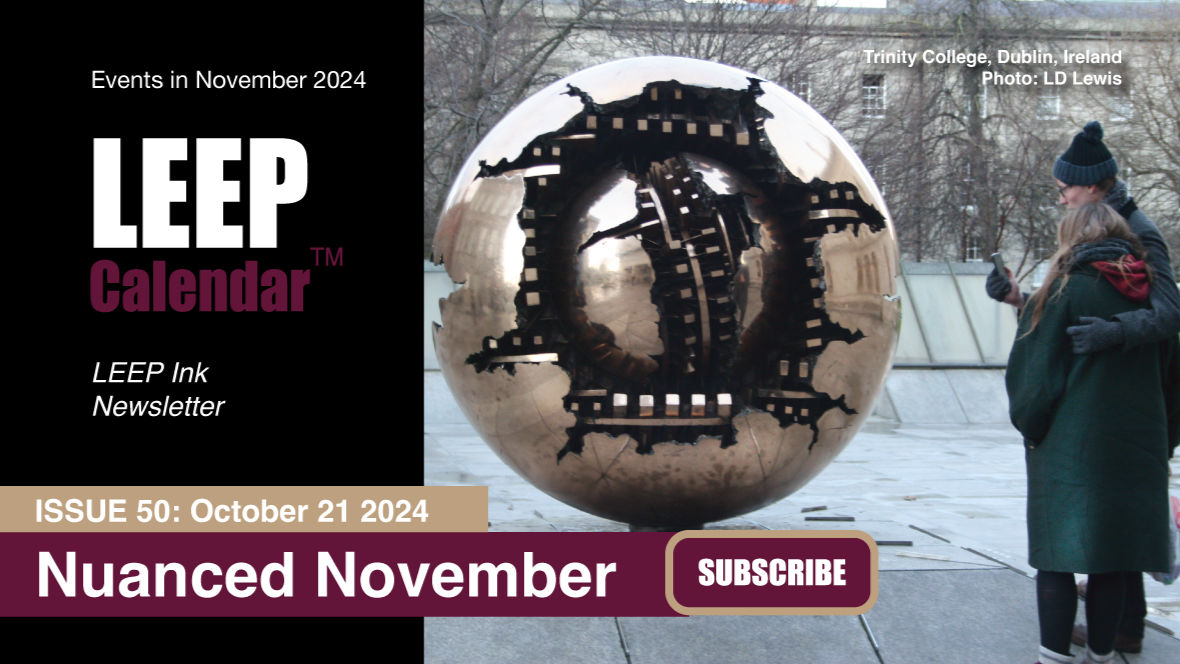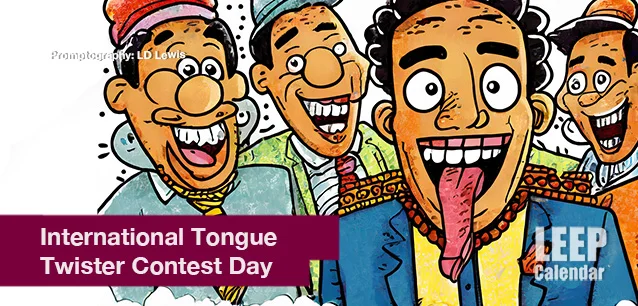 AD
AD
Today is: November 24
Scroll to explore events active on this date.
LEEP INK FEATURES

Nuanced November 2024
November is the start of the holiday season in many parts of the world. It is a time for family, football, food, shopping and decorating, particularly in the Christian and Jewish world, leading to Christmas and...

December's Gift
Events in December 2024. Well, we made it to December. December is the holiday season, particularly in Western nations, where Christianity and Judaism are the faiths most common in the nation's past. ...

August is Appropos
A toddler playing in the fountain at a park in Santa Fe, New Mexico—Photo LD Lewis. In August, we live through the Dog Days of Summer. It's hot and often humid, and those ...
About International Tongue Twister Contest Day
Education
Ends: Feb 22, 2025
DESCRIPTION:
International Tongue Twister Contest Day is an unofficial event celebrated by enthusiasts of linguistic games and challenges. The day focuses on the art and fun of tongue twisters – phrases designed to be challenging to articulate correctly, often amusing when mispronounced.
Tongue twisters have been a part of oral traditions for centuries, used not only for entertainment but also as a tool for language education, speech therapy, and actor training. International Tongue Twister Contest Day celebrates the linguistic complexity and humor inherent in tongue twisters. Participants engage in contests to see who can recite tongue twisters quickly and accurately without stumbling over the words. These contests often occur in schools, language clubs, and community gatherings, encouraging people of all ages to enjoy the playful aspect of language.
Tongue twisters exist in almost every language and vary widely in content, structure, and difficulty. They often involve alliteration or a sequence of similar but distinct phonetic sounds, making them challenging yet entertaining to articulate.
The history of tongue twisters goes back to many ancient cultures, with the oldest recorded tongue twisters created in an ancient Sanskrit text. In English, tongue twisters have been documented as far back as the 19th century, with some, like “Peter Piper picked a peck of pickled peppers,” still popular today.
The appeal of tongue twisters lies in their ability to engage language skills, improve diction and pronunciation, and provide entertainment. They are also used in educational settings to help students learn new languages and improve their speaking abilities.
International Tongue Twister Contest Day, therefore, represents more than just a fun challenge; it is a celebration of the linguistic diversity and complexity that tongue twisters bring to language learning and cultural traditions around the world. It showcases the universal nature of language games and their role in cultural and educational contexts across various languages and regions.
VIDEOS
Currently, this event does not have supporting videos.
SUPPORTING DOCUMENTS
Currently, this event does not have supporting documents.
ADDITIONAL IMAGES
Currently, this event does not have supporting images.
Where would you like to go now?
 AD
AD


/footer-logo.svg)
